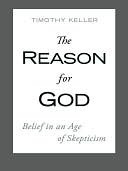More on this book
Community
Kindle Notes & Highlights
I was called by a reporter who wanted to know what would succeed high theory and the triumvirate of race, gender, and class as the center of intellectual energy in the academy. I answered like a shot: religion.”
My teacher for the first year was a retired minister. He was quite traditional and conservative, speaking often of the danger of hell and the need for great faith. In the second year of the course, however, the instructor was a new, young cleric just out of seminary. He was a social activist and was filled with deep doubts about traditional Christian doctrine. It was almost like being instructed in two different religions.
“Which one of you is lying?”
“If morality is relative, why isn’t social justice as well?”
While I had “said my prayers” for years, and while I sometimes had that inspirational, aesthetic sense of wonder at the sight of a sea or mountain, I had never experienced God’s presence personally. This required not so much knowledge of techniques for prayer, but a process in which I came to grips with my own needs, flaws, and problems. It was painful, and was, as is typical, triggered by disappointments and failures. It would take another, different kind of book to go into them. But it needs to be said that faith-journeys are never simply intellectual exercises.
This would eliminate the self-talk that is rampant in each camp, namely that it will soon be extinct, overrun by the opposition. Nothing like that is imminently possible. If we stopped saying such things to ourselves it might make everyone more civil and generous toward opposing views.
A faith without some doubts is like a human body without any antibodies in it. People who blithely go through life too busy or indifferent to ask hard questions about why they believe as they do will find themselves defenseless against either the experience of tragedy or the probing questions of a smart skeptic. A person’s faith can collapse almost overnight if she has failed over the years to listen patiently to her own doubts, which should only be discarded after long reflection.
such a process will lead you, even after you come to a position of strong faith, to respect and understand those who doubt.
Every doubt, therefore, is based on a leap of faith.
Though she can’t pinpoint one moment, she came to feel, for the first time, “unconditionally loved as a true daughter of God.”
He began to pray to the Christian God, and soon he realized that his dominant life narrative had been the escape and total avoidance of suffering.
He saw a way to get the courage to face the inevitable suffering of the future, and to know there would be a path through it.
yet they had doubts about their doubts,
I realized that my achievements were ultimately unsatisfying, the approval of man is fleeting, that a carpe diem life lived solely for adventure is just a form of narcissism and idolatry. And so I became a believer in Christ.”
“If Christians are right about Jesus being God, then Muslims and Jews fail in a serious way to love God as God really is, but if Muslims and Jews are right that Jesus is not God but rather a teacher or prophet, then Christians fail in a serious way to love God as God really is.” The bottom line was—we couldn’t all be equally right about the nature of God.
The 20th century gave rise to one of the greatest and most distressing paradoxes of human history: that the greatest intolerance and violence of that century were practiced by those who believed that religion caused intolerance and violence.3
This view saw religion as playing a role in human evolution. We once needed religion to help us cope with a very frightening, incomprehensible world. But as we become more scientifically sophisticated and more able to understand and control our own environment, our need for religion would diminish, it was thought.4 But this has not happened, and this “secularization thesis” is now largely discredited.
Ironically, the insistence that doctrines do not matter is really a doctrine itself. It holds a specific view of God, which is touted as superior and more enlightened than the beliefs of most major religions. So the proponents of this view do the very thing they forbid in others.
There is an appearance of humility in the protestation that the truth is much greater than any one of us can grasp, but if this is used to invalidate all claims to discern the truth it is in fact an arrogant claim to a kind of knowledge which is superior to [all others]…We
How could you possibly know that no religion can see the whole truth unless you yourself have the superior, comprehensive knowledge of spiritual reality you just claimed that none of the religions have?
“the sociology of knowledge,” namely that people believe what they do largely because they are socially conditioned to do so.
The social conditionedness of belief is a fact, but it cannot be used to argue that all truth is completely relative or else the very argument refutes itself.
The reality is that we all make truth-claims of some sort and it is very hard to weigh them responsibly, but we have no alternative but to try to do so.


